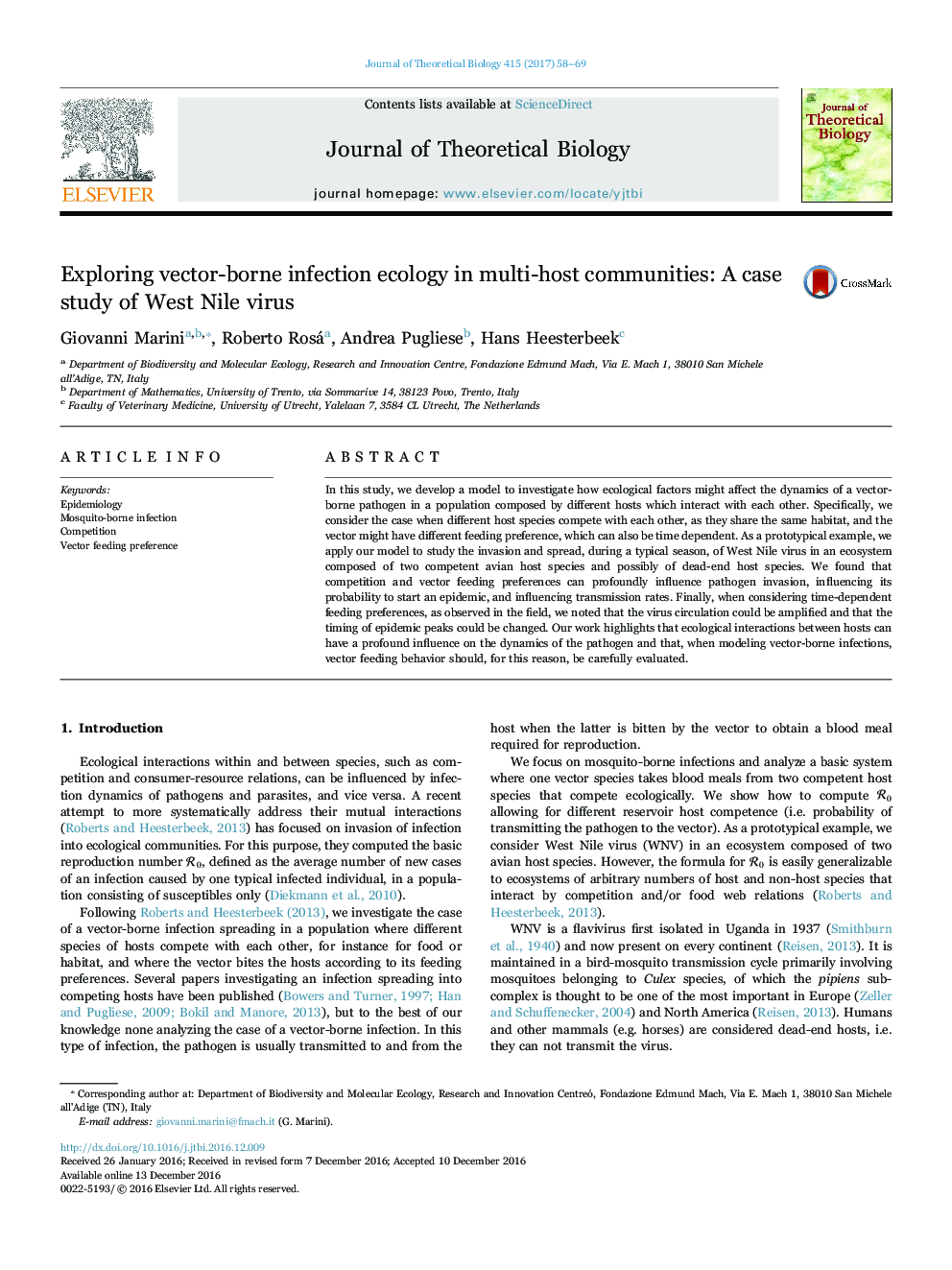| Article ID | Journal | Published Year | Pages | File Type |
|---|---|---|---|---|
| 5760103 | Journal of Theoretical Biology | 2017 | 12 Pages |
Abstract
In this study, we develop a model to investigate how ecological factors might affect the dynamics of a vector-borne pathogen in a population composed by different hosts which interact with each other. Specifically, we consider the case when different host species compete with each other, as they share the same habitat, and the vector might have different feeding preference, which can also be time dependent. As a prototypical example, we apply our model to study the invasion and spread, during a typical season, of West Nile virus in an ecosystem composed of two competent avian host species and possibly of dead-end host species. We found that competition and vector feeding preferences can profoundly influence pathogen invasion, influencing its probability to start an epidemic, and influencing transmission rates. Finally, when considering time-dependent feeding preferences, as observed in the field, we noted that the virus circulation could be amplified and that the timing of epidemic peaks could be changed. Our work highlights that ecological interactions between hosts can have a profound influence on the dynamics of the pathogen and that, when modeling vector-borne infections, vector feeding behavior should, for this reason, be carefully evaluated.
Keywords
Related Topics
Life Sciences
Agricultural and Biological Sciences
Agricultural and Biological Sciences (General)
Authors
Giovanni Marini, Roberto Rosá, Andrea Pugliese, Hans Heesterbeek,
